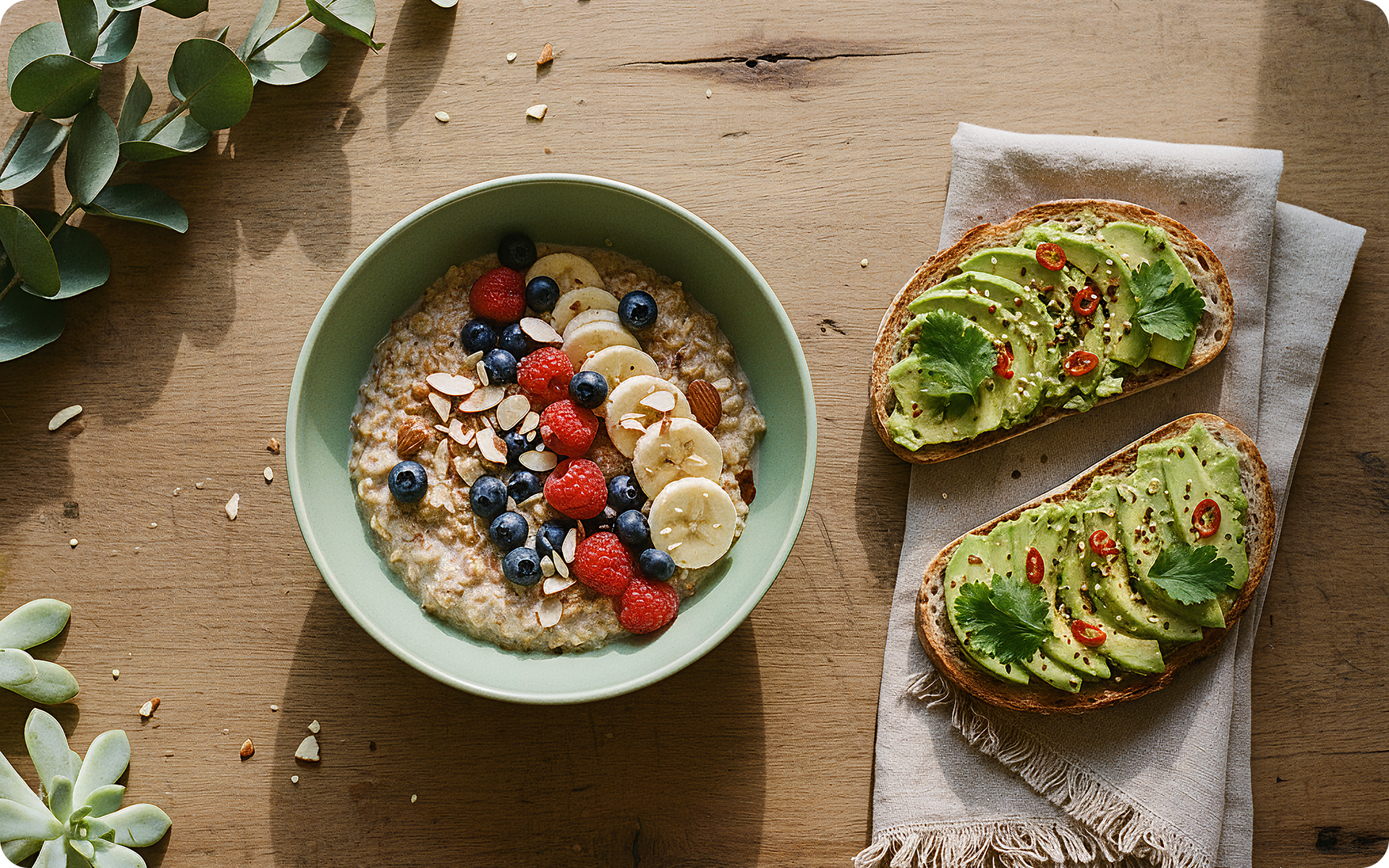Have you ever woken up in the morning, stepped on the scale, and wondered “How did I gain 2 pounds overnight?” If so, then you’re not alone – many people face the same issue from time to time. You may have attributed it to overeating or a change in your exercise routine.
However, this is not necessarily true. What you probably didn’t know is that weight fluctuations are natural for the human body and can occur for many different reasons. In this article, we’ll explore some of those reasons and how you can prevent them from happening.
Is It Possible to Gain 2 Pounds of Fat Overnight?
No, it’s most likely not possible to gain 2 pounds of fat overnight. To gain that much fat, you would theoretically have to eat 7,000 calories more than your body burns in a single day. This is virtually impossible, not only for the average person, but also for athletes, bodybuilders, and people who need to consume copious amounts of food due to their profession.
Is It Normal to Gain 2 Pounds Overnight?
Yes, it is. While you may not suddenly gain 2 pounds of fat overnight, the scale can go up 2 pounds after just 8 hours of sleep. Before you freak out and start looking up new tips and tricks on how to lose weight, you should remember that your weight is more than just fat.
When you step on a normal bathroom scale, it weighs everything in your body, including fat, muscle, blood, organs, water, and bones. When the number on the scale suddenly goes up by two to three pounds in the morning compared to the previous night, it’s usually most likely due to water retention
Most times when the scale goes up, it’s due to water retention. Also known as fluid retention or edema (in more serious cases), this is the buildup of fluid in the body. This condition can be caused by a number of reasons.
What Causes Overnight Water Weight Gain?
There are several reasons for overnight weight fluctuations, including:
Eating a Salty Dinner
Consuming highly salty foods such as chips or gravy just before bedtime can cause you to retain water. As the body needs to keep its sodium-to-water ratio to function properly, it will end up holding on to any extra water if you eat too much sodium.
This extra fluid is then stored in your tissues, causing the number on the scale to go up the next morning after you wake up (6). The same goes for drinking a lot of fluids before bedtime; extra liquid in your system will also cause an increase in weight when you get out of bed.
Eating Too Much Sugar
Eating too much sugar is one of the most common reasons for water weight gain. Table sugar is not the only culprit here. Other things such as sweeteners e.g. high-fructose corn syrup, honey, or agave nectar, in addition to natural sugar content in foods such as fruit and dairy products.
Eating a lot of sugar causes your insulin levels to rise, which may lead to your kidneys retaining more water and sodium (2).
This contributes to bloating and some temporary weight gain due to increased fluid retention.
Betterme will keep you laser-focused on your weight loss journey! Nutrient-packed meal plans, fat-blasting workouts, galvanizing challenges and much more. Try using the app and see for yourself!
Dehydration
If your body doesn’t have enough water to function properly, you’ll experience dehydration, which leads to increased appetite and decreased energy. Being dehydrated also makes you more thirsty the day after not drinking enough fluids (7).
If you drink beverages with caffeine or alcohol instead of water, this makes it even harder for your kidneys to balance sodium levels.
If you’re dehydrated at bedtime, your body will hold on to every drop of water that enters your system throughout the night, which makes it much easier to gain weight overnight.
Missing a Bowel Movement
When you don’t have a bowel movement before bed, waste sits in your intestine and draws water into the stool. If this continues for several days in a row, it can cause you to gain 2 pounds overnight. In addition, waste takes up space and has weight, so it can make you look or feel bloated.
Hormones
Hormones are powerful chemical messengers that help control your body’s functions. They’re also responsible for controlling changes in weight that are brought about by water balance. For example, estrogen increases sodium retention, which can increase the amount of fluid in your system and make you gain weight overnight (4).
Food Intolerance
If you have a food intolerance, eating certain foods can lead to continued water retention and weight gain. Symptoms of this include bloating soon after eating the offending food and feeling generally unwell throughout the day (5). However, as water weight fluctuates rapidly, it’s difficult to see how intolerances affect your weight on a daily basis.
Intense Workouts
Working out is great for weight loss, but intense workouts may sometimes lead to sudden weight gain through water retention for the following reasons (16):
- Weather changes – Hotter weather can cause the plasma in your blood to retain more water than normal for a few days after an intense workout session.
This change can be seen in people who have recently changed locations from areas with colder weather to those with warmer weather. Seasonal weather changes, such as cold winter to a slightly warmer spring or spring to summer, can also lead to this temporarily.
- Depleted sodium levels – In the same way that too much sodium leads to water retention, so does too little. When you do an intense workout, you lose sodium through sweat and urine.
If you do not replenish these levels quickly enough and the sodium level in your blood becomes too low, extra water will move into your cells and make them swell. This is known as hyponatremia and if it is not checked, it can lead to health issues, some of which could be life-threatening.
- Dehydration – Working out intensely often means sweating more, which equals losing the water that’s already in your body.
If you don’t hydrate well enough after a workout, this can lead to dehydration, which can lead to water retention.
Read more: Push Day Workout: A Comprehensive Guide for Upper Body Gains
Starting to Eat Carbs Again
In some people, particularly those who have been dieting or fasting, a meal that is high in carbohydrates, such as pasta or rice, can be stored as glycogen. Glycogen is stored with water, which causes an individual to gain water weight very quickly – as much as 2 pounds overnight.
Drinking a Lot of Alcohol Before Bed
Alcohol acts as a diuretic and causes dehydration, which can lead to bloating and an increased body weight the next morning. Plus, if you drink too much alcohol before bed, you’ll feel groggy and less likely to get up during the night for a trip to the bathroom (13). So, when you don’t drink enough water throughout the day, your body will hold on to every last drop.
Certain Medication
Some medications lead to water retention as a side effect. Common culprits for this include high blood pressure medication (antihypertensives), corticosteroids and nonsteroidal anti-inflammatory drugs (NSAIDs), some birth control pills, diabetes medication, and gabapentin.
Make sure you speak to your doctor if this is a concern and never stop taking medications on your own without consulting your doctor first.
Late Night Dinners
Even if you eat an early dinner, eating too close to bedtime can cause you to wake up with extra weight as the food has sat in your stomach overnight. Food takes approximately 4 hours to fully digest before it leaves your stomach and enters the intestines, where it travels through for even longer.
This means that eating a bigger meal closer to bedtime causes more to be left behind and may weigh you down when you wake up. Drinking water throughout the day will help keep things moving as it won’t just sit in one spot.
Pregnancy
Unexplained weight gain may be a sign of pregnancy. When you’re pregnant, the baby requires extra nutrients, which means more food for mommy. In addition, your blood volume increases, which adds weight in the form of fluid (10).
If you gain 3 pounds overnight or notice a significant difference in your weight day-to-day together with other typical pregnancy symptoms, you should contact your doctor to rule out pregnancy as the cause.
Stress
Stress is part and parcel of daily life. However, extreme stress is not. If you’re under extreme stress or strain, your cortisol levels usually increase. Cortisol is one of the hormones that make you feel hungry, even when your body doesn’t need food. This causes cravings for high-carbohydrate foods such as pasta and breads.
Cortisol also makes your kidneys retain sodium, which can contribute to heightened blood pressure and water retention throughout your body (12).
How to Avoid Overnight Water Weight Gain
Waking up in the morning to find out you suddenly can’t fit into your favorite jeans is not a good feeling. Even worse is stepping on a scale only to realize you’ve somehow gained 2 pounds since yesterday evening. As mentioned above, this sudden weight gain is not due to fat gain, but usually due to water retention caused by multiple factors.
Learning how to avoid overnight weight gain caused by fluid retention can help ensure you don’t struggle fitting into your jeans first thing in the morning.
BetterMe app will kick you out of the mental funk, shake off your extra weight, rid you off your energy-zapping habits, and help you sculpt the body of your dreams. Intrigued? Hurry up and change your life for the better!
How to Avoid Overnight Weight Gain – Tips to Avoid Water Retention
Here are some tips to help you avoid unfortunate overnight fluctuations in your weight:
Don’t Eat Right Before Bed
Eating before bed can have a significant impact on your weight during your waking hours. Food takes time to digest, absorb, and eliminate any waste, so eating a heavy meal late at night may increase your chances of gaining two pounds overnight (14).
Your best bet may be to eat dinner early and not eat anything for a few hours before you go to bed. This should help you avoid extreme weight fluctuations when you wake up the next morning.
Don’t Drink Alcohol Before Bed
You’ve heard that alcohol makes you retain water, right? Also, if you drink too much before bed, it will likely disrupt your sleep cycle and cause you to wake up feeling groggy and unrested.
The combination of disrupted sleep and increased water retention from drinking alcohol before bed can make it almost impossible for you to lose weight, even when you’re following a strict diet and exercise regimen (11).
The takeaway here is this: try not to consume more than one alcoholic beverage before bed and ideally, avoid it altogether. This will help limit the chances of experiencing overnight weight gain and should make it easier for you to lose actual weight.
Drink Plenty of Fluids—Just Not Before Bed
You’ve probably heard that drinking plenty of water is good for your health, but did you know that drinking water can help you avoid fluid retention? This is because when you’re dehydrated, your body holds on to every drop of fluid it can. If you stay well hydrated throughout the day, you’re less likely to retain water.
Limit Added Sugar and Salt
Both excess sugar and salt can cause fluid retention, so remember this when you prepare your meals and snacks. You don’t need to avoid them altogether, but limiting both added sugar and salt can help minimize water weight gain.
Sleep 7-8 Hours Each Night
You’ve surely heard that sleeping is good for your health, but did you know it can help prevent weight fluctuations? Studies have suggested that sleep deprivation is associated with weight gain and obesity (9).
This is likely because poor sleep triggers the release of cortisol, a hormone that stimulates appetite. If you’re trying to lose weight, it’s important to get 7-8 hours of sleep every night so your body can properly rest and recover.
Can Weight Fluctuate 2 Pounds in a Day?
Yes, it can. Weight fluctuations don’t just happen at night. In fact, according to Healthline, your weight can fluctuate by up to 5 or 6 pounds a day. As with overnight weight gain, daytime weight fluctuations can be caused by various factors such as (8, 15):
- Food and fluid intake – Not necessarily in terms of calorie content, but more in terms of the actual weight of the food. If you put one lettuce leaf on a scale, the number will not remain at 0.
All foods and drinks weigh something, so when you consume them, they’ll add to your weight. The number will go down as they are digested and the waste is eliminated, but if you weigh yourself right after you eat or drink something, the number will very likely be higher.
- Stool and urine – They also weigh something, which is why some people notice that they somehow weigh less after a poo.
- Exercise – As mentioned above, working out in certain conditions can cause temporary weight gain through water retention caused by dehydration, diluted sodium levels, and even environmental temperature changes.
- Your monthly cycle (specifically in relation to estrogen and progesterone) – The former causes water retention while the latter is a natural diuretic that can lead to dehydration. Depending on where you are in your cycle and which hormone is most active, your weight will fluctuate in multiple ways.
- A high sodium intake – As mentioned above, this can lead to increased water weight due to fluid retention.
Read more: How to Start Exercising Again, Even When You’ve Lost All Motivation
FAQs
How do you flush water weight overnight?
While water weight can be frustrating to deal with, it’s thankfully quite easy to get rid of. Some tips to help your body do this naturally include (1):
- Work out – You easily lose water through sweat when you exercise. A quick but intense 30-minute workout can help get rid of the excess water in your body
- Eat more potassium-rich foods – This nutrient helps regulate fluid balance in the body and increases the production and secretion of urine, which helps keep sodium levels in check.
- Reduce your salt/sodium intake – This will help the body rebalance its sodium-water-ratio and prevent water retention.
- Eat more magnesium-rich foods – As with potassium and sodium, magnesium also plays a vital role in the body’s water balance. Such foods include dark green leafy vegetables, nuts, seeds, and whole grains.
- Reduce your carb intake – As mentioned above, each excess carb that is consumed and turned into glycogen is then stored in the muscle with a little bit of water alongside it. Therefore, a higher carb intake means more glycogen and water storage in the body.Carbs also increase insulin levels in the body, which could increase sodium retention and reabsorption of water in the kidneys. You don’t need to go on a low-carb diet, but if you’ve been eating a lot of refined carbs and sugar lately, you may want to cut back on them.
- Drink some caffeine – This could be in coffee or tea. Caffeine is said to be a diuretic, which increases urination for a short amount of time and helps get rid of excess water in the body
Can you gain 7 pounds in a week?
Yes and no. It’s likely impossible to gain 7 pounds of body fat in a week. However, you can gain 7 pounds of water weight in the same time frame due to fluid retention in the body.
Can I lose 3 pounds overnight?
Yes, you can lose 3 pounds overnight. This is usually due to water weight loss during the night or a bowel movement early in the morning. However, losing 3 pounds overnight due to fat loss is impossible.
Can you make your stomach flat overnight?
No, especially if the bigger waistline is caused by excess fat. However, if the issue is due to bloating, it can be a quick overnight fix. However, more long-term solutions are preferable if this is a continuous issue.
Why do I gain weight when I eat less?
A calorie deficit is helpful for weight loss, but eating too little can have the opposite effect. The body thinks you’re starving and holds on to the little calories you give it, turning it into fat in an effort to “save” you.
If you’re within the recommended deficit but the scale is going up, the problem is then not dietary and is more lifestyle-based. Factors such as too much stress, thyroid and hormonal issues, and poor sleeping habits can lead to weight gain while on a caloric deficit.
The Bottom Line
Weight fluctuations such as two pounds overnight are completely normal and nothing to worry about. You should keep track of what you eat and drink throughout the day and make sure to get enough sleep every night in order to maintain your ideal weight.
DISCLAIMER:
This article is intended for general informational purposes only and does not serve to address individual circumstances. It is not a substitute for professional advice or help and should not be relied on for making any kind of decision-making. Any action taken as a direct or indirect result of the information in this article is entirely at your own risk and is your sole responsibility.
BetterMe, its content staff, and its medical advisors accept no responsibility for inaccuracies, errors, misstatements, inconsistencies, or omissions and specifically disclaim any liability, loss or risk, personal, professional or otherwise, which may be incurred as a consequence, directly or indirectly, of the use and/or application of any content.
You should always seek the advice of your physician or other qualified health provider with any questions you may have regarding a medical condition or your specific situation. Never disregard professional medical advice or delay seeking it because of BetterMe content. If you suspect or think you may have a medical emergency, call your doctor.
SOURCES:
- 8 Easy Ways to Lose Water Weight (Fast and Safely) (2023, healthline.com)
- Added Sugars Drive Insulin Resistance, Hyperinsulinemia, Hypertension, Type 2 Diabetes and Coronary Heart Disease (2022, ncbi.nlm.nih.gov)
- Does high-carbohydrate intake lead to increased risk of obesity? A systematic review and meta-analysis (2018, nih.gov)
- Estrogen effects of osmotic regulation of AVP and fluid balance (2002, physiology.org)
- Food intolerance and mucosal inflammation (2015, nih.gov)
- Increased salt consumption induces body water conservation and decreases fluid intake (2017, nih.gov)
- Intracellular Edema and Dehydration: Effects on Energy Metabolism in Alveolar Macrophages (1976, science.org)
- Is Weight Fluctuation Normal? (2023, healthline.com)
- Molecular ties between lack of sleep and weight gain (2016, nih.gov)
- Pregnancy and birth: Weight gain in pregnancy (2018, nih.gov)
- Sleep Apnea (2021, webmd.com)
- Stress-induced sodium retention and hypertension: a review and hypothesis (2009, pubmed.gov)
- The Diuretic Action of Weak and Strong Alcoholic Beverage in Elderly Men: A Randomized Diet-Controlled Crossover Trial (2017, nih.gov)
- The Health Impact Of Nighttime Eating: The Old and New Perspectives (2015, nih.gov)
- Why Does My Weight Fluctuate So Much? 7 Causes Of Weight Fluctuation (2023, womenshealthmag.com)
- Why Do You Retain Water After Exercise? (2019, livestrong.com)














